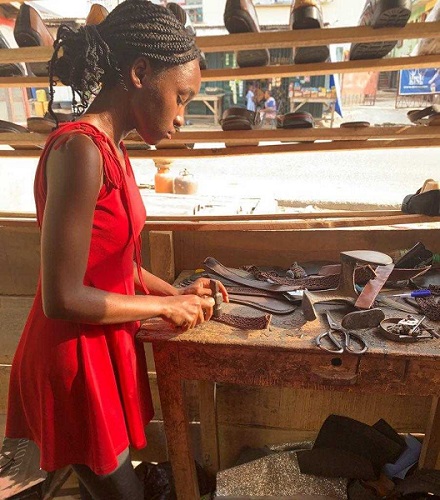
Starting a shoe business in Nigeria can be an exciting and profitable enterprise for people who are passionate about the footwear and fashion industry.
Nigeria, with its enormous population and expanding middle class, represents a promising market for locally made shoes.
Entering this field, on the other hand, necessitates meticulous preparation, market research, and a good business strategy.
We will explain the critical stages to assist you in effectively launching your shoe-making business in Nigeria in this tutorial and give you a step-by-step strategy for setting up your operations, creating a unique brand, and capturing the attention of Nigerian consumers, beginning with market research and business planning and ending with production, branding, and marketing.
By adhering to these guidelines and remaining committed to quality and innovation, you can pave the route to a profitable business.
Here is a breakdown of steps to follow.
1. Research the Market
- Conduct market research to better understand the Nigerian shoe market, including target customers, preferences, and trends.
- Analyze possible competitors’ products, pricing, and marketing methods.
- Differentiate your shoe brand by identifying your unique selling points (USPs).
2. Create a Business Plan
- Outline your company’s goals, target market, marketing strategy, and financial projections.
- Define your brand identity, which includes the types of shoes you’ll make, the materials you’ll employ, and your price approach.
- Make a budget that includes startup costs, equipment, raw materials, marketing charges, and operational costs.
3. Learn New Skills and Knowledge
- If you have no prior experience in shoemaking, consider taking a shoe-making school or an apprenticeship to learn the craft and obtain the necessary abilities.
- Familiarize yourself with various shoe-making techniques, materials, and tools.
4. Set Up Your Workshop
- Find a suitable location for your shoemaking workshop. Consider things like accessibility, size, ventilation, and proximity to suppliers and consumers.
- Purchase the necessary shoemaking equipment and tools, such as cutting machines, sewing machines, lasters, finishing tools, and workbenches.
- Maintain a consistent supply of high-quality raw materials, such as leather, textiles, threads, adhesives, and soles. Develop partnerships with reliable suppliers.
5. Build Your Shoe Collection
- Create a variety of shoe designs based on market research and the tastes of your target customers.
- When creating your shoes, keep quality, comfort, and style in mind.
- Shoe prototypes should be tested for durability, fit, and comfort. Make any adjustments as needed and required.
6. Inventory Acquisition and Management
- Determine your inventory requirements based on your shoe designs and manufacturing capabilities.
- Establish ties with reliable suppliers and negotiate favourable raw material sourcing arrangements.
- Maintain an effective inventory management system in order to track materials, finished goods, and avoid stockouts.
7. Quality Control and Production
- Set up a production schedule and properly manage resources to ensure timely production.
- To guarantee consistent product quality, implement quality control procedures.
- Regularly assess the quality of materials, workmanship, and finished products to meet customer expectations.
8. Branding and Marketing
- Develop a strong brand identity that includes a logo, brand colors, and packaging.
- Create a professional website to display your shoe collection to promote online sales.
- Utilize social media platforms and digital marketing strategies to promote your brand.
- Participate in local trade shows and fashion exhibitions, as well as collaborate with influencers, to raise brand awareness and increase visibility.
9. Create Distribution Channels
- Determine which distribution channels are appropriate for your target markets, such as retail storefronts, internet marketplaces, or direct sales.
- Build relationships with retailers or set up your own stores.
- Implement efficient logistics and delivery systems to ensure timely product distribution.
10. Provide Excellent Customer Service
- Offer personalized customer service to build customer loyalty and satisfaction.
- Provide clear product information, size guides, and care instructions to customers.
- Handle customer feedback, complaints, and returns promptly and professionally.
READ: These Steps Will Guide You On How To Start An Interior Decoration Business In Nigeria
In conclusion, Keep in mind that launching a shoemaking business involves perseverance, dedication commitment, and continuous learning. Adapt your strategies based on market feedback, stay updated with industry trends, and always strive for quality and innovation.
















Leave a Reply